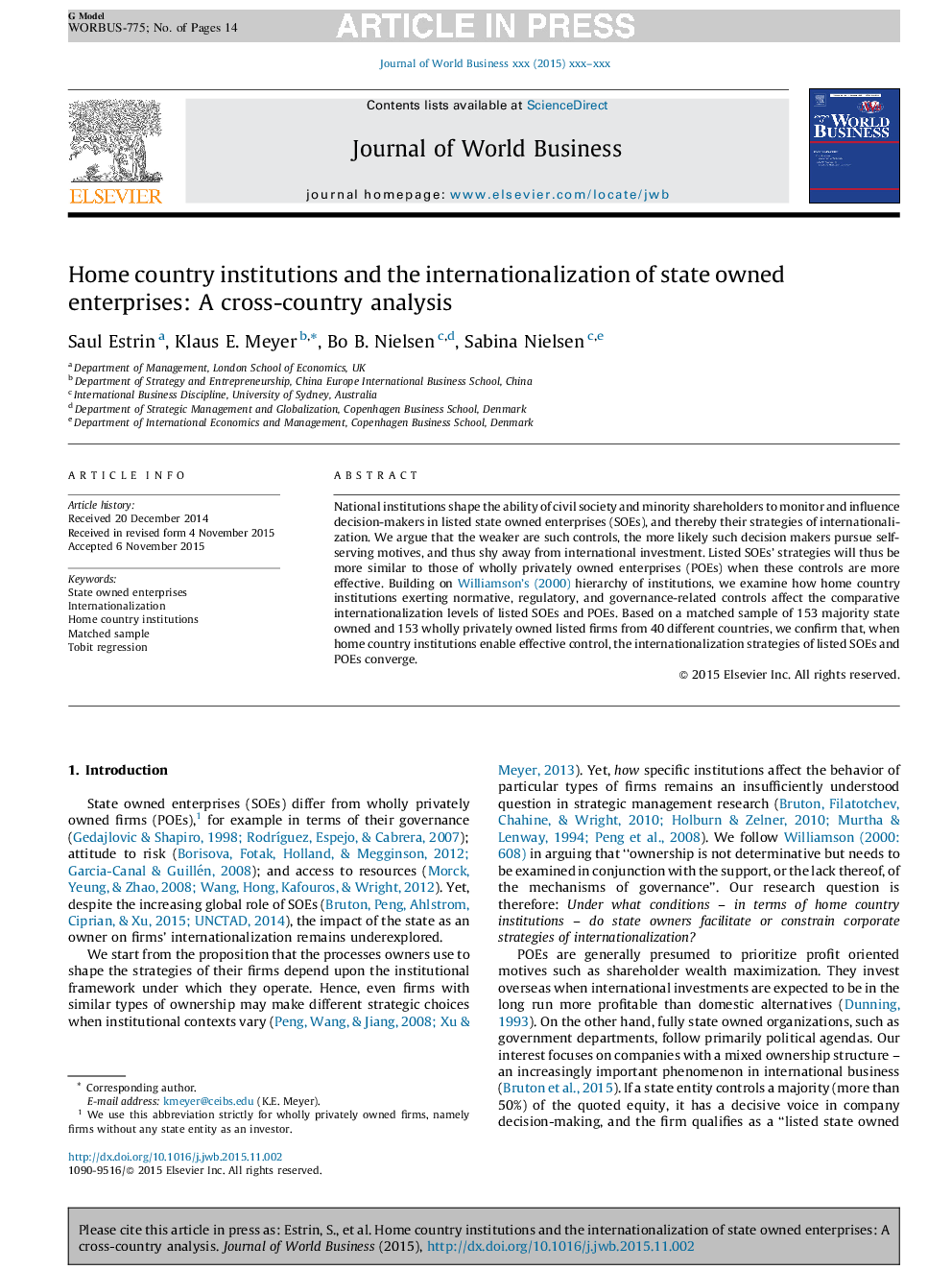| Article ID | Journal | Published Year | Pages | File Type |
|---|---|---|---|---|
| 10489165 | Journal of World Business | 2016 | 14 Pages |
Abstract
National institutions shape the ability of civil society and minority shareholders to monitor and influence decision-makers in listed state owned enterprises (SOEs), and thereby their strategies of internationalization. We argue that the weaker are such controls, the more likely such decision makers pursue self-serving motives, and thus shy away from international investment. Listed SOEs' strategies will thus be more similar to those of wholly privately owned enterprises (POEs) when these controls are more effective. Building on Williamson's (2000) hierarchy of institutions, we examine how home country institutions exerting normative, regulatory, and governance-related controls affect the comparative internationalization levels of listed SOEs and POEs. Based on a matched sample of 153 majority state owned and 153 wholly privately owned listed firms from 40 different countries, we confirm that, when home country institutions enable effective control, the internationalization strategies of listed SOEs and POEs converge.
Related Topics
Social Sciences and Humanities
Business, Management and Accounting
Business and International Management
Authors
Saul Estrin, Klaus E. Meyer, Bo B. Nielsen, Sabina Nielsen,
